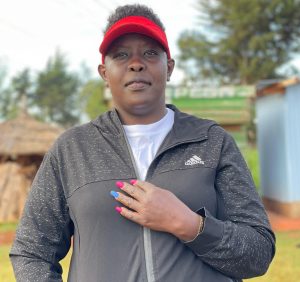Herbs Farming Business in Kenya
The increasing trend for a healthy lifestyle and the need to boost immunity due to the Covid-19 pandemic has raised demand for herbs and spices.
The number of farmers growing herbs and spices as their main economic crop has also increased.
A quarter an acre can produce up to 300 kilos of herbs and spices with a farmer earning about Sh.60,000 monthly. Main market is people suffering from lifestyle diseases.
A rich and sweet cocktail of scents greets you at Sarah Nyambura’s herbal farm in Njoro Sub County in Nakuru. A range of herbal crops on a quarter acre farm in Mukunguru location, are arranged in orderly rows.
Initially, Nyambura says that she had tried their luck in cabbages and tomato farming, but as she would soon discover, the crops were not only labour-intensive, but also had low income particularly when they were hit by a glut in markets.
From a quarter an acre of cabbages, she would make around Sh.20,000 in three months, while she makes more than double the amount from mint on a similar size of land in two weeks.
Her farm teems with medicinal and culinary herbs which include thyme, Chia, Rosemary, Basil, mints, Sage, Marjoram, Gooseberry and Oregano.
She states most of the herbs are used to dress fish, meat and poultry in fresh or dry form in tourist hotels. According to her, prices of herbs vary from Sh.220 to Sh.800 a kilo.
But Nyambura, who is rather new in the herbs farming agribusiness, says she wishes to learn more about this venture and concentrate on the export market alone.
This way, she says, she will not only earn more but also employ more than the current three people who work in her farm.
“Initially, I grew the herbs for home consumption. I used to sell them to my neighbours who would use them to spice and dress foodstuffs such as rice, fish, stews, chicken and tea,” she says. It was not until 2018 that she started commercial farming.
That time, she met officials from Virtuous Women and Youth Horticulture Campaign (VWYHC), an organization that empowers women and youth on commercial herb farming.
On the day of the interview, the farmer was in the company of Irene Muchimba and Sheila Khai, founder and Director Virtuous Women and Youth Horticulture Campaign respectively.
Whenever one needs help with planting, harvesting, marketing among other activities in farms, the organization steps in.
Nyambura says herbs are easy to manage. Most of them mature between three to five months, and thereafter continuous harvesting after one or two weeks.
Ms Muchimba, a nutritionist observes that herb farming is a venture that is yet to be exploited, yet it can create employment and income, especially for young people.
She says that the farming is simple, less capital and labour intensive and lucrative as long as the farmer is well prepared.
“In the wake of the Covid-19 outbreak across the world, demand for herbs, especially thyme, has been on the rise. Herbs are increasingly becoming popular as they provide natural ingredients needed in formulation of medication for diseases such as diabetes, cancer, hypertension among others.”
She states that currently, thyme is fetching about Sh.800 per kilogramme in the international market, with the main market being within the European Union (EU) while a kilogramme of the other herbs fetches some 3.4 Euros (Sh.394) in the export market.
Kenya’s herbal crops she says have a huge unmet demand in Russia, Italy, United Kingdom and Netherlands.
“Demand for our herbal crops peaks up in the European market from October to March during winter. We advise our farmers to increase their volumes during this period,” explains Ms Muchimba.
Ms Khai says their next big move will be investing in value addition. She adds that in value addition, the herbs can be used to manufacture juices and other final products. “Those who do value addition are raking in more money than those who sell in raw form,” She states.
Fred Odhiambo, a youth from Rongo town in Migori County has been practicing herb farming in his forty-square meters organic farm for medicinal values.
Odhiambo, a teacher by profession and the Director of Organic Green System whose herb business initiative is my farm, my food, my health and my wealth. He said that he was motivated to start herb farming in 2018 to tap on the underdeveloped business and help Kenyans live a healthier life.
He says that he started planted the herbs when he realized the returns were much better than his previous vegetable business.
Odhiambo says that his forty-square meter farm has 43 different herb crops that takes between two and half to seven months to mature. The farm has herb crops like Moringa aloe vera, ginger plant, peppermint, beetroot, yellow dock and Artemisia plant (malaria plant).
He says that some of these herbal plants help to normalize blood pressure improve wound healing and eliminate constipation. He also notes that the herbs help in blood circulation, prevent colds and coughs, and relief heartburn.
Odhiambo notes that he has also planted vegetables like spinach as a herb because of its medicinal value. He is encouraging Kenyans to always include spinach in their diet as it aids in weight loss, promotes eye health, and healthy bones. The excess spinach is sold to vegetable vendors in Rongo town.
He explains that these herbs prevent a lot of diseases that are chronic like diabetes and hypertension that have become a problem to our health and which has drained a lot of Kenyans financial resources during the treatment process.
He acknowledges that organic farming can solve a lot of health problems because the crops grown are natural and free from toxic chemicals and fertilizers that are usually used. He notes that the nutrition obtained from his herbs will help a lot of people live a healthier lifestyle.
Odhiambo blends and packages herb juice which he sells in Migori, Nairobi and other neighboring Nyanza Counties. One liter of blended herb juice costs Sh.150. His daily income ranges between Ksh.2,000 to Ksh.3,500 which he says is good return.
“I do sell seedlings to local farmers, adding to my profits. I also train farmers on how to do organic farming and herb planting because of the passion and the self-satisfaction I get from enterprise,” said Odhiambo.
The farmer notes that he has gone for various training sessions to enhance his agribusiness skills. He says that the skills acquired will help improve his herb enterprise as well as be able to train other farmers on the same.
*Written By:* Justine Nyachieo
Business Man & Mentor








